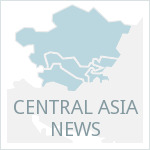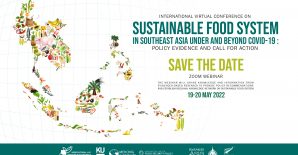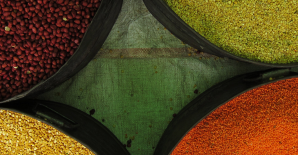News
World Bank-Supported Project Finances Cash Transfers to Protect Vulnerable Children in Tajikistan
The World Bank-financed Tajikistan Emergency COVID-19 Project will be supporting up to 50,000 low-income families with a one-time payment of 500 Tajik Somoni. Eligible families are those with children under the age of three who are enrolled in the Targeted Social Assistance system. The funds will be paid out in multiple stages over the next 6 months. - World Bank
ADB Approves $50 Million Grant to Support Tajikistan COVID-19 Response
The ADB will be delivering $50 million to Tajikistan under the COVID-19 Active Response and Expenditure Support (CARES) Program to provide budget support to the government. Specifically, the funds will allow the government to scale up the availability of medical supplies and quarantine facilities, and will support salary increases for frontline COVID-19 medical personnel. Additionally, the funds will enable the government to extend its social assistance program to at least 207,000 households. - ADB
ADB to Support Economic Cooperation Zone for Mongolia
The ADB has approved a $30 million loan to develop Mongolia's Zamyn-Uud free zone, a part of a proposed economic cooperation Zone between Mongolia and China. The funds will support construction and operations for new infrastructure in the zone, and will allow Mongolia to expand its trade activities. The project is set to be complete by December 2025. - ADB
Uzbekistan: Right to lifetime ownership of land by dekhkans to be abolished
A new law in Uzbekistan will abolish lifetime allocation of dekhan farmland in favor of temporary, but still long-term leases. Specifically, land for horticulture and vineyards will be leased for 30-50 years and land for vegetables, potatoes, and other crops will be leased for 5-15 years. These laws are set to take effect by January 1, 2021. - kun.uz
Analysis & Related Information
COVID-19 Analyses: IFPRI Blogs
IFPRI is facilitating an ongoing blog series to discuss COVID-19 as it relates to food security and development at the global, regional, and country levels. Though some concern specific countries, the insights are applicable to others as the world collectively experiences the impacts of the pandemic. This week's blog discusses the innovations occurring in food systems in response to COVID-19, and whether they will persist in the future.
IFPRI Virtual Events
IFPRI has been hosting virtual events to discuss various issues related to food and agriculture policy. Videos like this will periodically be posted publicly after being streamed live, and will include presentations from researchers, discussion between researchers, and Q&A. While there will not be a new seminar this week, please visit the link to view past seminars.
Improving learning outcomes: What lessons can Central Asian countries learn from the COVID-19 crisis?
Students and educators around the world have been forced to adapt their studies to life during COVID-19. Many education solutions revolve around web-based approaches, but in areas where quality internet access is not universal, delivering quality education has been all the more challenging. Some communities in Central Asia have found ways to work around that. For example, in Kazakhstan, mobile operators, the national telecom operator, and the Ministry of Education and Science have joined efforts to provide families with free internet access to a wide range of educational services. In Uzbekistan, many children without the internet can receive education via broadcast television. These are just two examples of various efforts in progress in Central Asia. - World Bank Blogs
Publications & Reports
Assessing Air Quality Changes in Large Cities During COVID-19 Lockdowns: The Impacts of Traffic-Free Urban Conditions in Almaty, Kazakhstan
Kerimray, A. et al. 2020. Science of the Total Environment, Vol. 720. Early Online Version.
A new approach to interpret vegetation and ecosystem changes through time by establishing a correlation between surface pollen and vegetation types in the eastern central Asian desert
Lu, K.Q., et al. 2020. Palaeogeography, Palaeoclimatology, Palaeoecology, Vol. 551. Early Online Version.
Exploring the unmet needs for creating an enabling environment for nurturing care to promote migrant child health in Bishkek, Kyrgyzstan: A theory-guided community-based participatory action research
Kim, H. et al. 2020. Evaluation and Program Planning, Vol. 80.
Learning from Multi-Hazard Early Warning Systems to Respond to Pandemics
Rogers, D. et al. 2020. Working Paper No. 149839, Washington D.C.: World Bank Group.
Sustainable water management for cross-border resources: The Balkhash Lake Basin of Central Asia, 1931–2015
Duan, W. et al. 2020. Journal of Cleaner Production, Vol. 263. Early Online Version.
Simulating the Potential Impacts of COVID-19 School Closures on Schooling and Learning Outcomes : A Set of Global Estimates
Azevedo, J. P. et al. 2020. Policy Research Working Paper No. 9284, Washington D.C.: World Bank Group.
Useful Links & Commentaries on Research Methods, Data & Publications
The Paper of How: Estimating Treatment Effects Using the Front-Door Criterion
Marc F. Bellemare, Jeffrey R. Bloem, Noah Wexler. 2020.
Events & Announcements
Virtual Seminars on Applied Economics and Policy Analysis in Central Asia
IFPRI, Westminster International University in Tashkent, and the Lebniz Institute of Agricultural Development in Transition Economies (IAMO) will continue to host weekly seminars on topics related to applied economics and policy analysis in Central Asia. They will take place on Wednesdays, at 7:30am EST, 2:30pm Moscow, 4:30pm Dushanbe & Tashkent, 5:30pm Bishkek & Almaty. For subscribers, registration information will be sent on the Monday before each webinar. For more information and to subscribe, visit the link. This week's webinar will be hosted by IFPRI's Dr. Shenggen Fan from China Agricultural University, who will present Economic Impact of COVID-19 and Policy Responses: Lessons for Central Asian Countries from East Asian Experience.
Virtual AFE Seminar Series
A virtual seminar series organized by John List of the University of Chicago Department of Economics and Robert Metcalfe of Boston University's School of Business is being hosted weekly on Zoom. Each seminar will include a research paper presentation and Q&A, starting at 12pm EST on Wednesdays. Follow the link to view the full schedule of presenters and to sign up for invitations to the live seminar. Presentations will also by uploaded to a YouTube playlist.
Online Agriculture and Resource Economics Seminar
Dr. Marc F. Bellemare and PhD candidate Jeff Bloem will be hosting a weekly (Wednesdays, 11am CST) online seminar to discuss various research topics related to agricultural economics, nutrition, and food security. For example, the next seminar on June 24 includes a presentation of the paper, "Are High-Interst Loans Predatory? Theory and Evidence from Payday Lending" by New York University's Hunt Allcott et al. Follow the link for registration information and a schedule of upcoming seminars.
Development Policy and COVID-19: eSeminar Series
The World Bank's Development Research Group is hosting an online seminar series for discussions on development policy as it relates to COVID-19. The seminars are completely public, do not require an application or sign-up, and will continue for the foreseeable future.
If you would like us to add your colleagues to our mailing list, please direct them to the following link.
The articles included in this news digest have been generated from online sources. Any opinions stated herein are not representative of, or endorsed by, the International Food Policy Research Institute or its partners.



